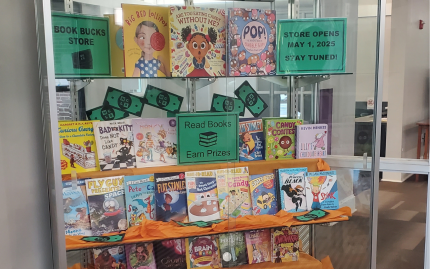Making Money Smart Students
Financial literacy doesn't have to be restricted to April. Make money-smart students any time of year.
Financial literacy doesn't have to be restricted to April. Make money-smart students any time of year.

Patrons were invited to get a first peek at a financial literacy exhibits at an event with art projects, poetry and more.

Collaborative programming can help teenagers — and adults — learn how to financially prepare for college.
With a traveling exhibition, the Mid-Continent Public Library is helping patrons learn about saving, spending and avoiding fraud.
April is Financial Literacy Month. Start your preparation now with these program ideas, book suggestions and resources to get kids involved.
Financial educators recommend teaching basic money concepts as early as three years old. One way to achieve this in your library is by incorporating financial literacy themes into your storytimes.

To encourage financial literacy in the community, participants recorded what they read on their personal "NCLS Book Bucks Log" and earned one "book buck" per title. "Book bucks" could be redeemed for small prizes.

We all love a good party! In Penny Pinchers' Party, kids become party planners vying to organize the best party while staying within budget.
Are you looking for information on teaching financial literacy at the library? Look no further than this selection of articles.
Check out these four new fun online games to teach kids fundamental financial skills inside and outside of the library.